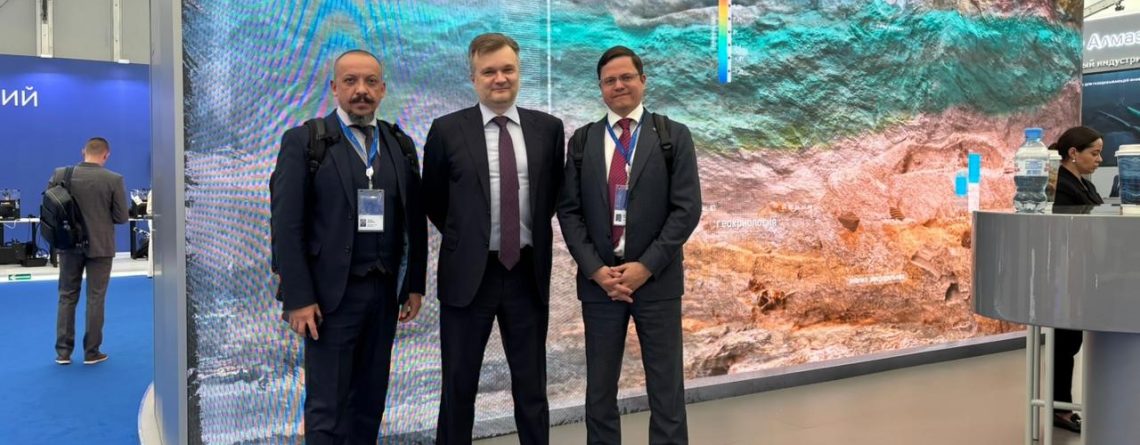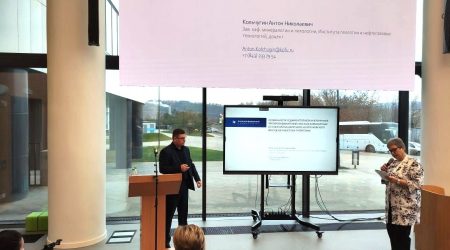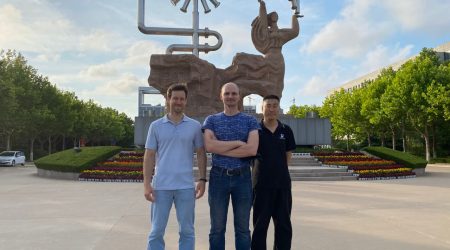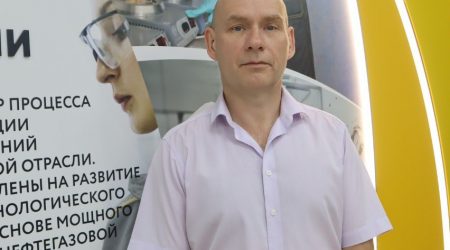KFU oilers represented at TNF 2025 Forum in Tyumen
Kazan Federal University was represented at the 10th Industrial and Energy Forum TNF-2025 on September 15th to 18th, which brought together leaders and experts from Russia’s fuel and energy sector. Mikhail Varfolomeev, Director of the Low Tonnage Chemical Technology Park, represented the alma mater.
One of the country’s largest platforms brought together representatives of oil and gas and oilfield service companies, government agencies, equipment manufacturers, and research staff.
Mikhail Varfolomeev spoke as an expert at three sessions of the forum held in Tyumen: “NOVATEK Visionary Day. Science and Technology Transforming the Oil and Gas Industry,” “Domestic Solutions: The Future of Chemical Reagents in Oil Production,” and “KIN-45: An Effective Tool for Achieving the Goals of Energy Strategy-2050.” He also held a number of scientific and technical meetings and discussions with industrial partners.
“Experts from various fields participated in NOVATEK’s visionary session, moderated by Vladimir Solovyov, Head of the company’s Science and Technology Center. They discussed new trends and promising areas in science and technology that will shape the future of the oil and gas industry,” says Dr Varfolomeev. “My presentation focused on chemistry and new materials that can significantly change the industry, as well as approaches to their rapid and efficient creation.”
The second session, organized by Gazprom Neft, was dedicated to oilfield chemistry. It discussed issues related to the localization of chemical reagents for the oil and gas industry.
“We discussed the need to ensure the effectiveness of reagents, and their cost must be competitive. The reagents available on the market today are either foreign or domestically produced, but they are very expensive,” explains the interviewee. “At this session, I presented Kazan University’s developments in the field of oilfield chemistry. Specifically, specialized smart well-kill fluids developed jointly with Gazprom Neft were presented. Furthermore, session participants learned about KFU’s capabilities in scaling up developments. It’s worth noting that one of the challenges facing oilfield chemistry today is that most university developments are laboratory-based and not scalable. Meanwhile, chemical producers and consumers need technology and pilot production to verify the effectiveness of a new product. The engineering center established at Kazan University within the Low Tonnage Chemical Technology Park is aimed at solving this problem. Work is currently underway to scale up field chemistry.”
Participants in the third session, including Alexey Zabozlaev, First Deputy Governor of the Khanty-Mansi Autonomous Okrug – Yugra, and representatives of Gazprom Neft and NOVATEK, discussed issues of enhanced oil recovery.
“Today, the oil recovery rate at fields in the Russian Federation and globally is 30-35 percent, meaning approximately two-thirds of the black gold remains in the reservoir. Enhanced oil recovery methods help increase oil production,” continues the scientist. “My presentation presented surfactants and chemical methods for enhanced oil recovery developed at Kazan University. KFU has a full chain of operations—from chemical development to testing and evaluating its effectiveness under reservoir conditions. To make this possible, the university created an interdisciplinary team within the Laboratory of Enhanced Oil Recovery, including physicists, chemists, modeling specialists, and petroleum engineers. But this alone allows us to effectively develop chemicals. KFU participates in large consortiums with leading oil and gas companies, as well as in the Republic of Tatarstan’s small-scale chemical production consortium. Thanks to this, we are able not only to develop chemicals for enhanced oil recovery but also to actively promote them among oil and gas companies.”
According to Varfolomeev, Kazan University is one of the world’s leaders in the scientific field of enhanced oil recovery methods. The university’s scientists are developing all types of methods—chemical, thermal, and gas EOR.






